Movies have the incredible ability to transport us to different parts of the world, offering a unique glimpse into the lives, cultures, and histories of diverse communities. In this article, we’ll embark on a cinematic journey through Israel, exploring films that beautifully capture the essence of this fascinating country – its people, culture, life, and the complexities of war.
Movies About Israel
Waltz with Bashir (2008)
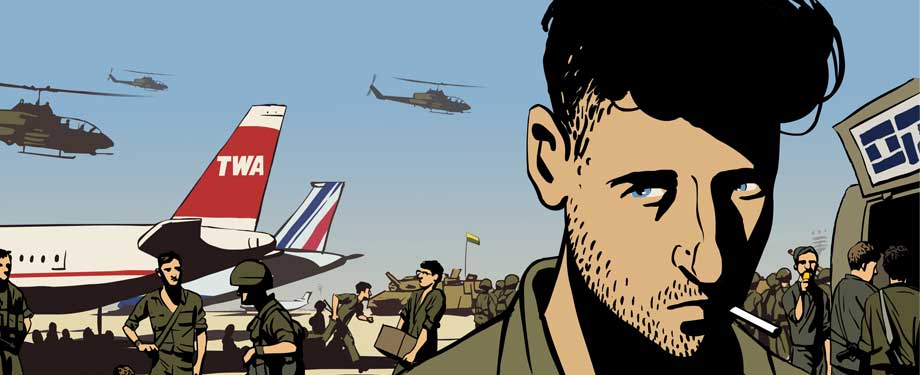
Director: Ari Folman
This animated documentary takes viewers on a powerful and haunting journey through the memories of an Israeli soldier during the Lebanon War. The unique animation style adds a surreal quality to the narrative, making it a powerful and immersive cinematic experience.
As the story unfolds, viewers are taken on a gripping journey that not only delves into the personal struggles of war veterans but also addresses the broader collective memory of a nation. The film masterfully intertwines personal narratives with historical events, shedding light on the psychological toll of conflict and the haunting memories that linger in the aftermath of war.
The film provides a unique lens into the Israeli experience, capturing the struggle to reconcile personal memories with the broader historical narrative. By exploring the human side of war, the movie fosters a deep sense of empathy and reflection, inviting audiences to engage with the multifaceted aspects of Israel’s history and the lasting effects of conflict on its people. It is an out-and-out movie about Israel.
Ajami (2009)
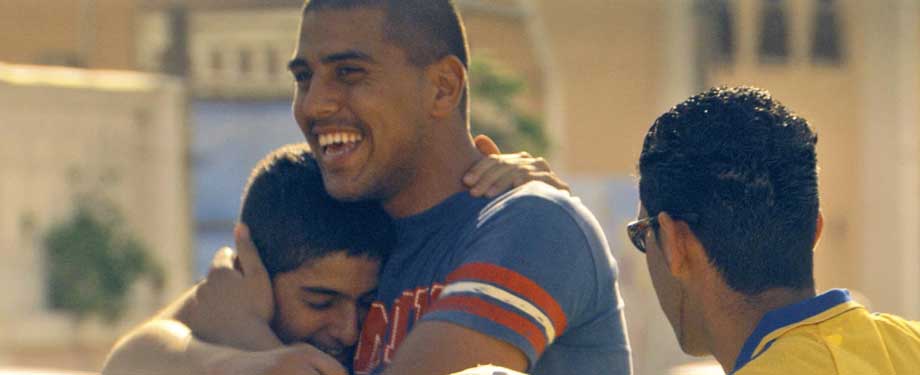
Directors: Scandar Copti, Yaron Shani
Set in the culturally diverse Ajami neighborhood of Jaffa, this film weaves together multiple storylines, offering a nuanced portrayal of the challenges faced by both Arabs and Jews. It’s a gripping exploration of the complexities of life in Israel.
The film skillfully interconnects the lives of its diverse characters – Jews, Arabs, and Christians – navigating through themes of love, crime, and revenge. The nonlinear storytelling adds layers to the plot, keeping the audience engaged as they piece together the interconnected lives of the characters. With its authentic portrayal of the cultural and socioeconomic diversity within Israel, Ajami stands out as a gritty and raw portrayal of life in a community grappling with historical tensions and contemporary challenges.
The film delves into the intricacies of everyday life, emphasizing the shared humanity of its characters while shedding light on the challenges faced by both Arab and Jewish communities.
Footnote (2011)

Director: Joseph Cedar
This drama-comedy delves into the academic world, exploring the strained relationship between a father and son who are both Talmudic scholars. The film touches on themes of ambition, rivalry, and the pursuit of excellence through humor and introspection.
This movie stands out for its witty dialogue, superb performances, and the way it navigates complex family dynamics with humor and depth. The film skillfully explores the tension between personal aspirations and familial expectations, offering a compelling narrative that is as intellectually stimulating as it is emotionally resonant.
This comedy movie provides a unique lens into Israeli society by focusing on the world of academia, a microcosm that reflects broader cultural values. The film captures the intense competition and high stakes in the pursuit of intellectual achievement, mirroring the societal emphasis on education and knowledge in Israel.
Bethlehem (2013)

Director: Yuval Adler
A tense and gripping thriller, Bethlehem navigates the intricate dynamics between an Israeli Secret Service officer and his teenage Palestinian informant. The film sheds light on the complex political and personal relationships that define life in the region.
Yuval Adler’s movie skillfully navigates the moral ambiguity of its characters, creating a narrative that keeps audiences on the edge of their seats. The film’s atmospheric tension is complemented by its authentic portrayal of the political and personal dynamics at play in the region, making it a riveting and thought-provoking exploration of the human cost of conflict.
The film sheds light on the intricacies of intelligence operations and the ethical dilemmas faced by those involved, showcasing the blurred lines between right and wrong in the pursuit of national security.
Zero Motivation (2014)
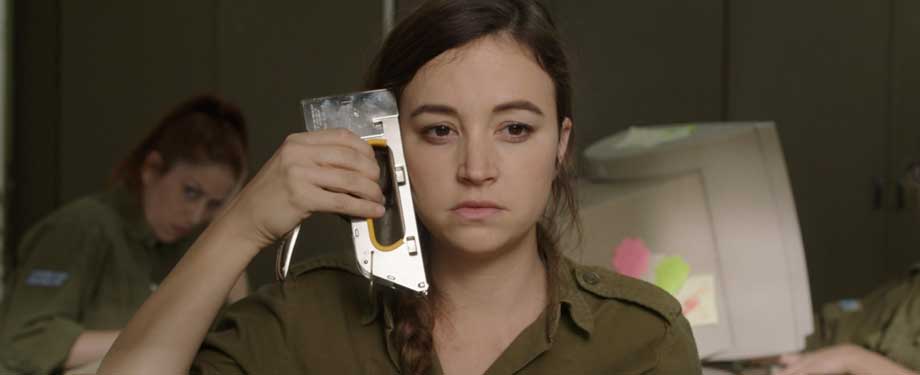
Director: Talya Lavie
This dark comedy offers a unique perspective by focusing on the lives of young female soldiers serving in the Israeli Defense Forces. It humorously explores the challenges and absurdities of military service, providing a fresh take on the Israeli experience.
This coming-of-age film follows the lives of young female soldiers stationed at a remote desert base, exploring the monotony, camaraderie, and absurdity of their experiences. The film cleverly blends humor with poignant moments, offering a satirical critique of the bureaucratic challenges and gender dynamics within the IDF.
It contributes to a broader understanding of the diversity of Israeli society and challenges preconceived notions about the nature of military service, showcasing the individual stories and aspirations of women navigating a male-dominated environment.
The Other Story (2018)

Director: Avi Nesher
In this family drama, two women from different backgrounds challenge tradition and societal expectations. The film tackles themes of identity, religion, and personal freedom, providing a thought-provoking glimpse into contemporary Israeli society.
Nesher masterfully explores the tensions between tradition and modernity, orthodoxy and secularism, creating a narrative that is both thought-provoking and emotionally resonant. The film’s complex characters, coupled with Nesher’s deft storytelling, provide a rich and engaging experience that transcends cultural boundaries.
The Other Story contributes to a broader conversation about the evolving nature of Israeli culture. The film’s exploration of the intersection between personal beliefs and communal norms provides a poignant reflection on the dynamics of identity and change within Israeli society
The Band’s Visit (2007)
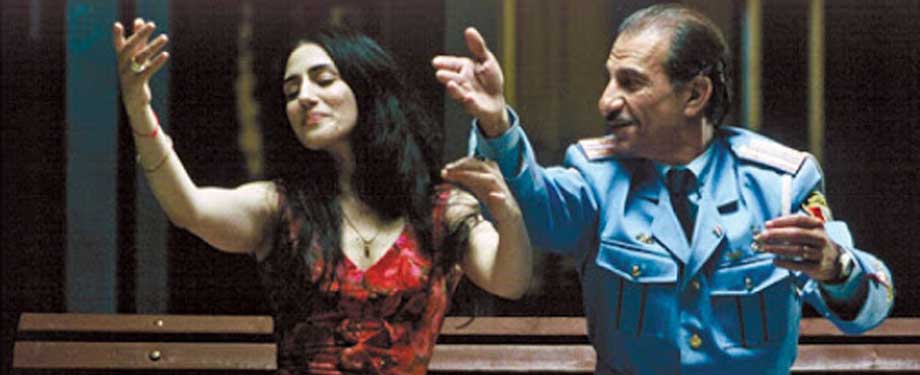
Director: Eran Kolirin
This heartwarming comedy-drama follows an Egyptian police band that gets lost in Israel while en route to a performance. As the characters interact with locals in a small Israeli town, the film beautifully portrays the power of music and human connection to bridge cultural divides.
Kolirin’s work transcends political boundaries to showcase the commonality of human experiences, emphasizing the shared emotions, joys, and challenges that unite individuals despite their cultural differences.
Beaufort (2007)
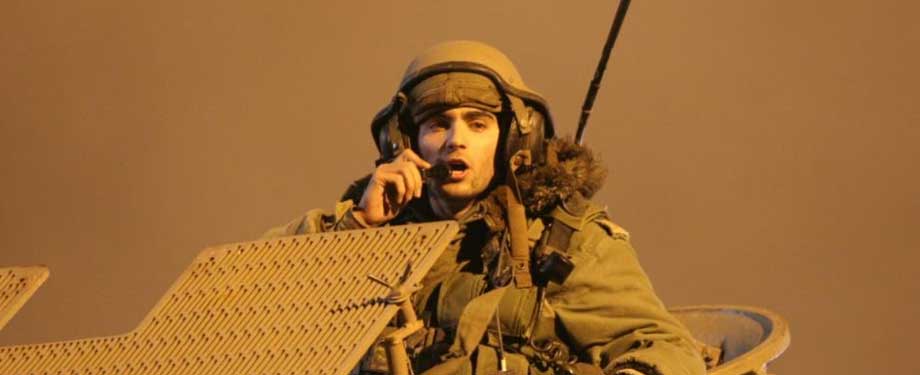
Director: Joseph Cedar
Set during the withdrawal of Israeli forces from Lebanon in 2000, Beaufort focuses on a group of soldiers stationed in a mountaintop fortress. The film provides a gripping exploration of the psychological toll of war and the human cost of conflict.
Based on the novel by Ron Leshem, the film unfolds within the confines of an isolated mountaintop fortress, where a group of Israeli soldiers faces the intense psychological and physical toll of their mission. Cedar skillfully captures the claustrophobia, tension, and existential dread that permeates the outpost as the soldiers grapple with the impending withdrawal.
Through its focus on the fortress of Beaufort, the movie becomes a metaphor for the broader national experience, capturing the sacrifice and the toll of conflict on individuals.
A Borrowed Identity (2014)
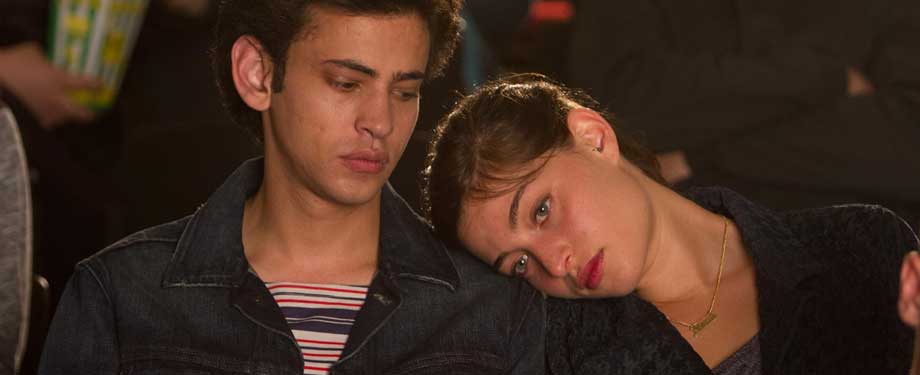
Director: Eran Riklis
Based on the novel by Sayed Kashua, this coming-of-age drama tells the story of an Arab-Israeli teenager who receives a scholarship to a prestigious Jewish boarding school. The film explores themes of identity, cultural assimilation, and the challenges of straddling multiple worlds.
The narrative gracefully explores themes of cultural assimilation, friendship, and the search for self-identity in a society marked by divisions.
The film delves into the tensions and challenges faced by Eyad as he attempts to straddle two worlds, shedding light on the intricacies of coexistence and cultural diversity within Israeli society. By exploring themes of identity and cultural assimilation, the movie becomes a mirror reflecting the broader dynamics at play in the nation.
Incitement (2019)
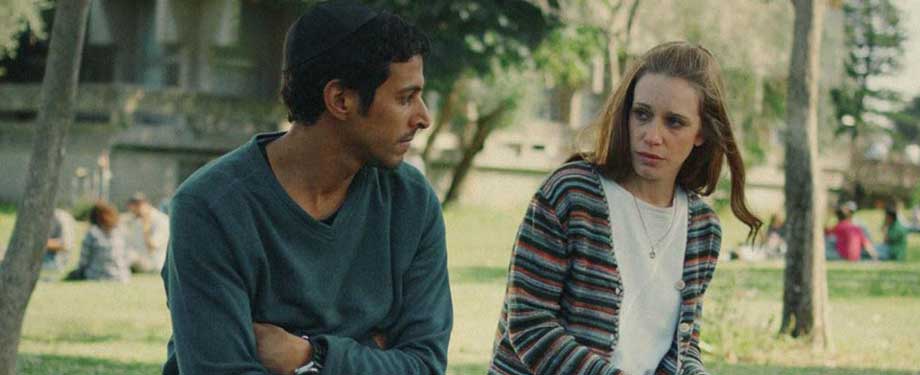
Director: Yaron Zilberman
Incitement is a chilling political thriller that chronicles the events leading up to the assassination of Israeli Prime Minister Yitzhak Rabin. Through a psychological lens, the film explores the motivations and radicalization of the assassin, providing a harrowing look at a pivotal moment in Israeli history.
Zilberman’s direction is both intense and suspenseful, creating a palpable atmosphere of tension and foreboding. Incitement masterfully weaves archival footage with dramatized scenes, offering a disturbing yet necessary exploration of the socio-political climate that fueled the tragedy.
This movie serves as a mirror reflecting the complexities of the nation’s political landscape, highlighting the dangers of polarization and the potential consequences of unchecked fanaticism.
The Syrian Bride (2004)
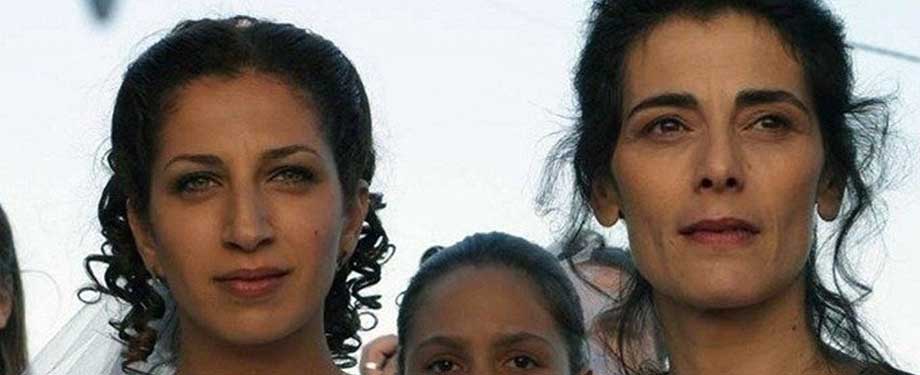
Director: Eran Riklis
This drama unfolds on the day of an arranged marriage between a Druze woman from the Golan Heights and a Syrian television star. The film explores the complexities of borders, family ties, and the impact of political tensions on personal lives.
Riklis beautifully captures the personal and emotional complexities of the characters, showcasing the impact of political borders on individual lives. The Syrian Bride is a delicate balance of humor and melancholy, offering a deeply human narrative that transcends the political landscape.
The film contributes to a broader understanding of the human dimensions of the Israeli-Palestinian conflict, emphasizing the shared humanity that transcends political boundaries.
The Source (2011)

Directors: Radu Mihaileanu
Set in a remote North African village, this film tells the story of a group of women who go on a “love strike” to protest the water shortage in their community. The movie explores themes of empowerment, tradition, and the resilience of women across cultural boundaries.
Mihaileanu skillfully weaves humor, drama, and cultural commentary into the narrative, creating a powerful and uplifting story of female solidarity and resilience. The Source is a celebration of the strength of women, offering a timely and universal message about the importance of collective action and the pursuit of justice.
The film’s exploration of the challenges faced by women in a traditional society echoes universal themes and resonates with broader discussions around gender dynamics and social change. While not directly depicting Israel, this movie contributes to a nuanced understanding of the broader Middle Eastern context and the various cultural and societal factors that influence the lives of women in the region.
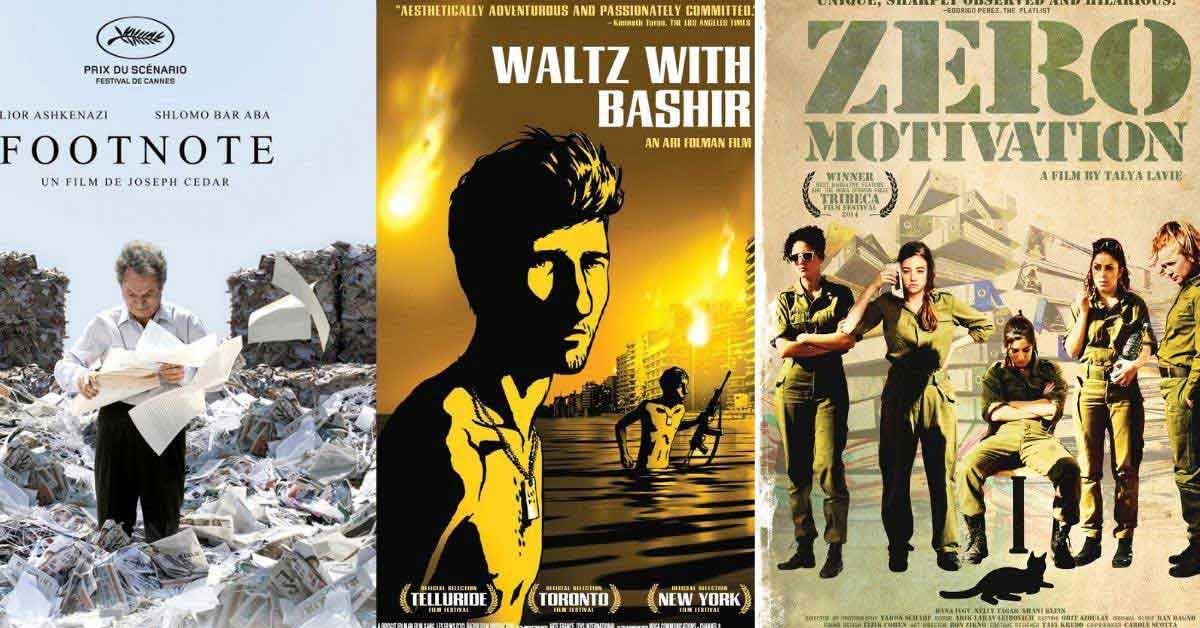




One thought on “12 Movies About Israel To Know The Captivating Culture”